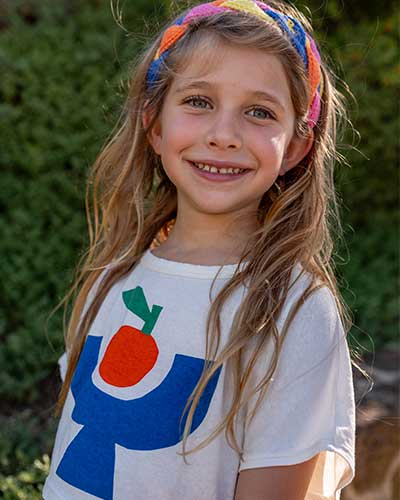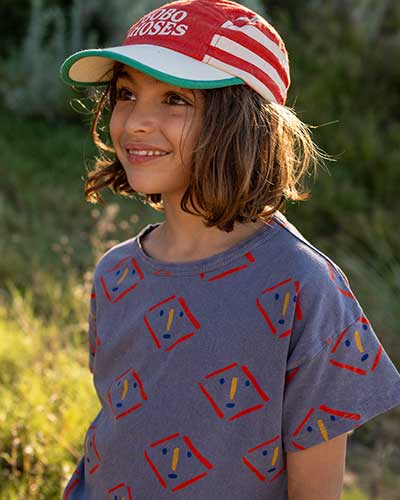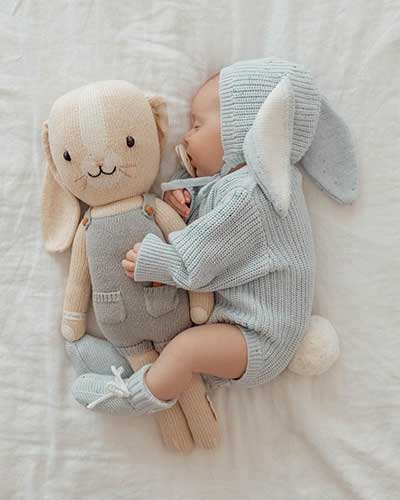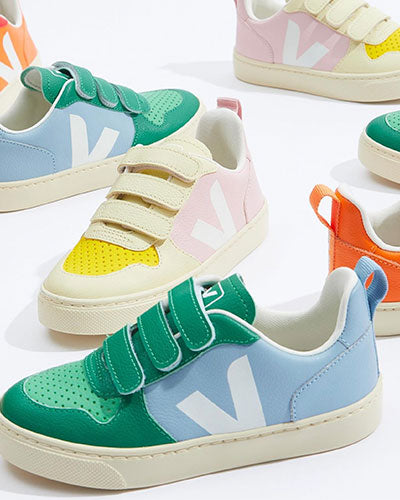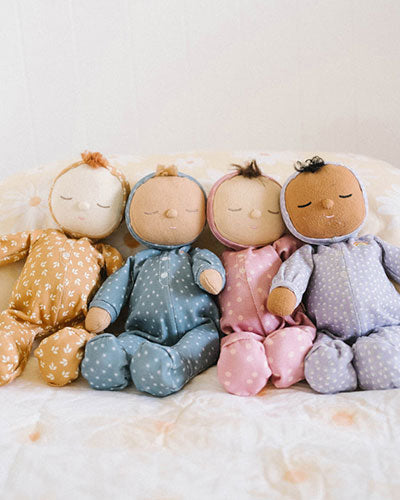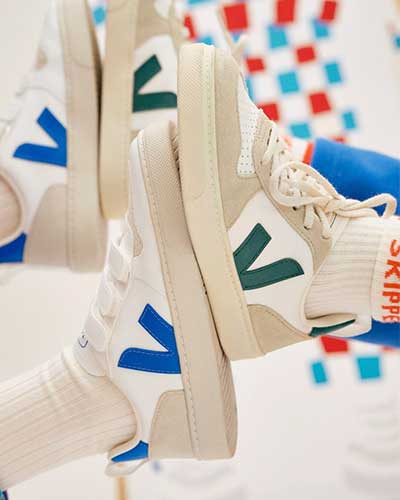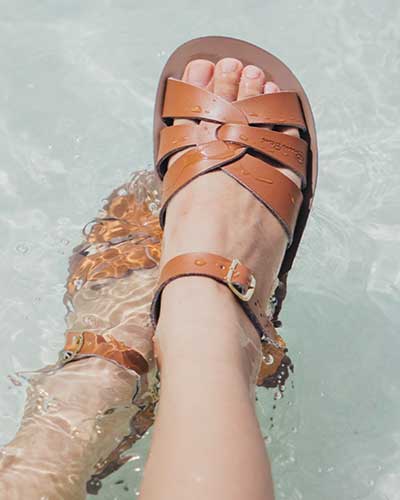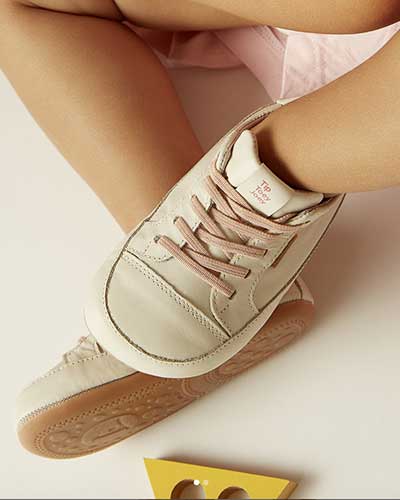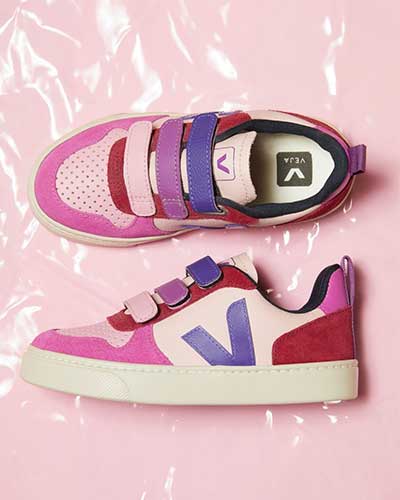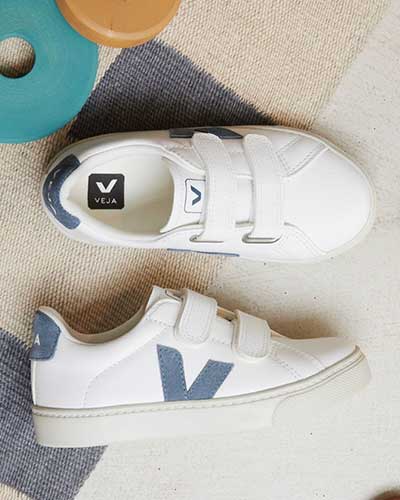FREE SHIPPING ON AU ORDERS $200+
VISIT OUR MELBOURNE STORE
Worldwide Shipping
Menu
-
- What's new
-
Babies
-
Girls
-
Boys
-
Teens
- Designers
-
Shoes
-
Toys & Home
-
SALE
-
- Login
-
AUD
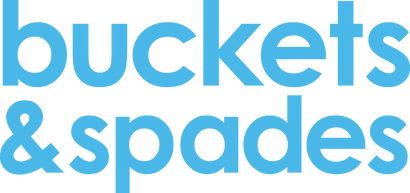
FREE SHIPPING ON AU ORDERS $200+
VISIT OUR MELBOURNE STORE
Worldwide Shipping
what's new
As a parent, you always want the best for your child, and that includes providing them with toys that will aid in their development. But with so many options available, it can take time to figure out where to start. When buying toys for kids, it's essential to consider what they need at their particular stage of development.
For young children, it's crucial to encourage their imagination, creativity, and curiosity through sensory and social toys. These toys stimulate their senses and help them engage with the world. As they grow and become more active, toys that teach cause and effect, promote hand-eye coordination, and encourage movement become more valuable. When toddlers reach the age of imaginative play, it's important to spark their curiosity and encourage them to explore the world around them.
To help you navigate the world of baby toys, we've created a blog describing age-specific toys that consider the different play needs of children at each stage of development. Read on to learn more!
Types of Toys
Four categories of toys are relevant to different stages of a child’s development: Open-Ended, Sensory, Fine Motor Skills, and Quiet Time. By incorporating toys from each of these categories, you can ensure that your child gets a well-rounded play experience supporting their development.
In the Open-Ended category, you'll find toys that can be used in various ways, encouraging creativity and imagination. Blocks, dolls, and playsets all fall into this category, allowing children to create their own stories and scenarios.
Sensory toys, such as textured balls or soft plush toys, encourage children to explore different sensations and textures, aiding their sensory development.
Toys encouraging fine motor skills, such as puzzles and building sets, help children develop hand-eye coordination and problem-solving skills.
Lastly, quiet time toys, like board books or soft stuffed animals, allow children to engage in independent play and unwind before bed.
It's important to note that children develop at different rates, so feel free to mix and match toys from different stages of development. A child who has already mastered their fine motor skills may still enjoy a puzzle or building set but might also be ready to explore the world of imaginative play with open-ended toys. By considering your child's needs and interests, you can choose toys that will keep them engaged and stimulated while supporting their overall development.

0-6 Months
As a parent, you want to provide your baby with toys that will stimulate their senses and support their growth and development. Even the earliest toys you give your little one can be educational and enriching, helping to lay the foundation for future learning.
It's important to choose toys that are age-appropriate and safe for your baby to play with. Since babies tend to explore with their mouths, toys made from natural materials are a good option. These toys should be free of small parts and other choking hazards, as safety should always be a top priority.
At this stage, toys serve multiple purposes. They can be used as parenting tools to distract your baby during nappy changes, soothe distress, and motivate them during tummy time. They can also serve as instruments of bonding and connection between you and your baby. The early months of a baby's life are crucial for building strong emotional relationships with their caregivers, and toys can play a role in strengthening those bonds.
The types of toys that are best for babies within this age group can include items like
● A playmat or activity gym which offers colourful designs, textures, and sounds to captivate your little one's attention while providing a soft, safe space where you can interact with your baby.
● A bouncer can provide gentle vibrations and soothing music to calm and comfort your baby.
● Teething and grabbing toys are other excellent choices for this age group, as they help develop fine motor skills and hand-eye coordination.
● Comfort dolls and stacking cups can also encourage your baby to explore and engage with their surroundings in new ways.
6-12 Months
As your baby progresses through their first year of life, their curiosity and desire to explore the world around them only grow. At the age of 6-12 months, play should focus on supporting language and movement, helping your little one develop both their communication and physical abilities.
As they become more mobile, toys encouraging them to make noise and create motion can be particularly engaging. And while it may be tempting to fill their toy boxes with aesthetically pleasing items, they must be intuitive. Playtime allows your baby to take control and discover the effects of their actions and choices. When toys are intuitive and enable them to work on developing a new skill, they don't need to be shown how to use it, which fosters independence and self-discovery.
The top picks for toys for babies aged 6-12 months include things like:
● Rainbow stacker toys can help develop their hand-eye coordination and problem-solving skills.
● Wooden puzzles or shape sorters can also be great for honing their problem-solving abilities and understanding of spatial relationships.
● A toy car can encourage them to crawl and move around.
● Bath toys provide a fun and sensory experience during bath time.
● Soft plush toys can provide comfort and familiarity.
● Board books are perfect for introducing your baby to the world of reading and language.
Remember, there's no right or wrong way to use toys at this age; it's about letting your little one safely explore and discover the world around them. By providing them with various intuitive and engaging toys, you can support their continued growth and development in a fun and interactive way.
12-24 Months
As your child grows, their needs and interests change, and their toys should evolve with them. Toys for children aged 12-24 months should stimulate and engage their curiosity and imagination. One great way to do this is by appealing to their senses - toys with lights, music, or different textures can all be great options.
Physical development is also a key focus at this age, so walkers, ride-on-boards that attach to the back of the pram, and other toys that encourage movement are particularly valuable. Additionally, toddlers are starting to explore their environment and understand the world around them, so books with animal characters or interactive features like flaps can help encourage their cognitive development. And remember play food - it's a fun way for toddlers to learn about different foods and start understanding the basics of cooking and mealtime.
Ultimately, the key to finding the best toys for children aged 12-24 months is to choose items that will capture their interest, promote physical development, and stimulate their growing minds.
2+ Years
As children grow older, their needs and preferences for toys change. When selecting toys for 2-year-olds and above, it's essential to consider their imagination and creativity. Open-ended toys such as doll houses and figurines inspire kids to create scenarios and storylines. Puzzles and problem-solving toys can also help children learn while having fun. It's also worth incorporating books into playtime, as reading repetitive stories can improve language skills and encourage pattern recognition.
And as children approach their third year, it's helpful to introduce toys that encourage realistic play, such as play sets that mimic real-life scenarios. By providing a diverse range of toys that cater to their interests, you can help foster their development and curiosity in the world around them.
Choosing the right toys for your baby at each stage of their development can make a big difference in supporting their growth and learning. From toys that encourage exploration and tummy time for newborns to intuitive toys for 6-12 months olds, sensory-stimulating toys for 12-24 months, and open-ended and imaginative toys for two years and beyond, there's a wide variety of options available.
It's important to remember that safety should always be a top priority when selecting toys for your little one and that playtime should be a fun and enjoyable experience for both parent and child. By keeping your baby's developmental needs in mind and choosing toys that are engaging, stimulating, and safe toys, you can provide a nurturing environment that supports their learning and development.
